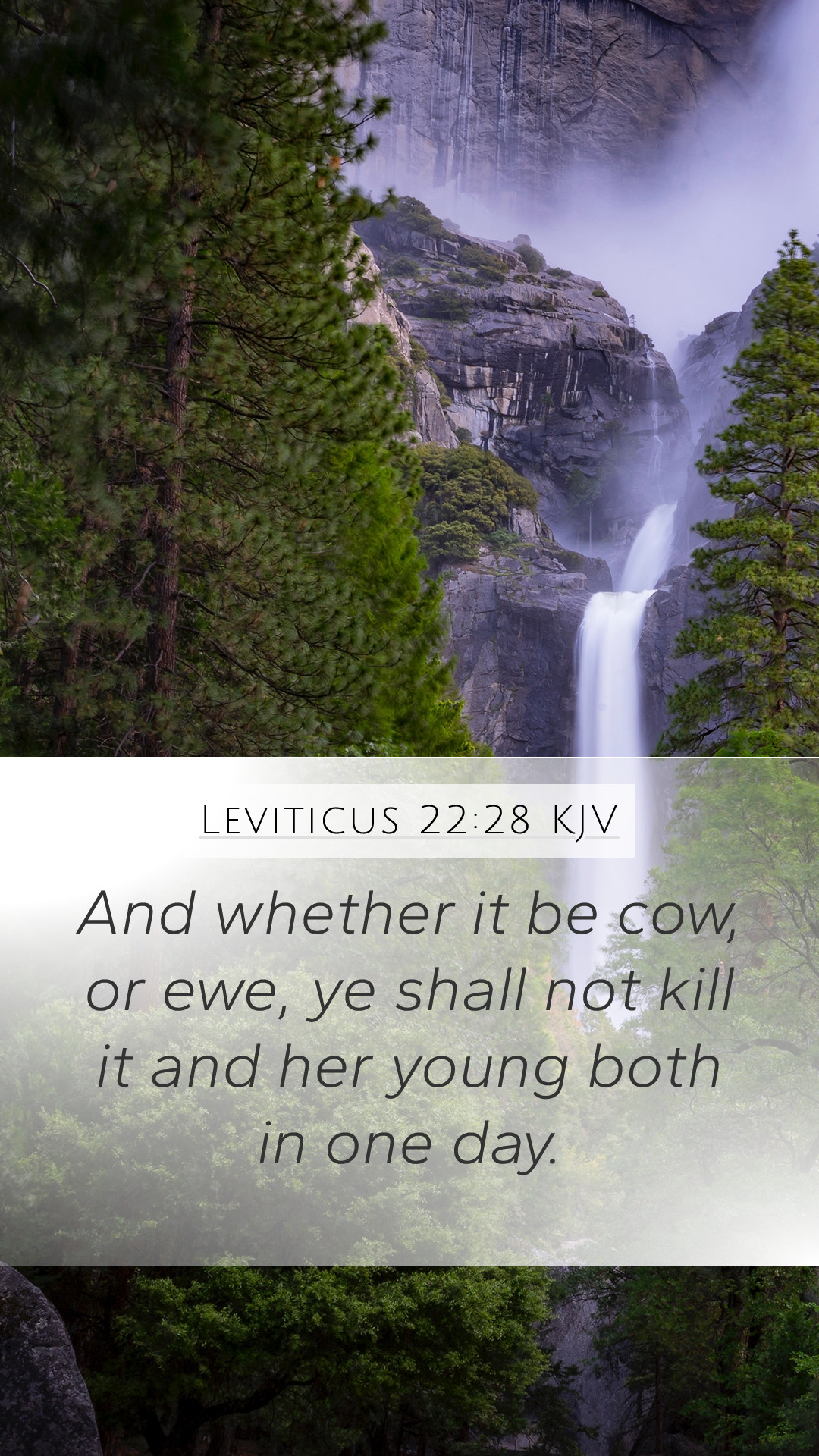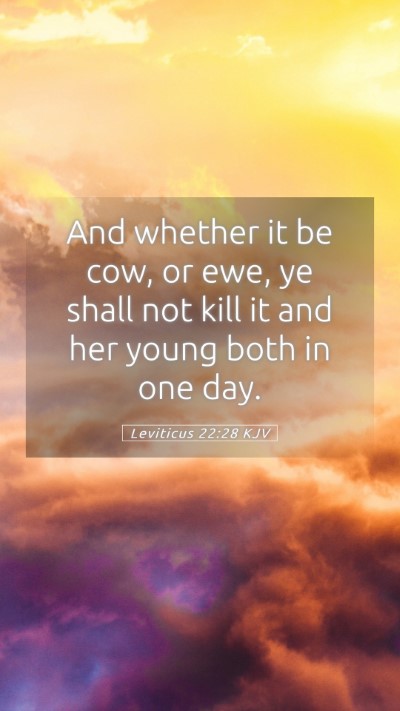Bible Verse Commentary: Leviticus 22:28
Understanding Leviticus 22:28 is crucial for grasping the principles of holiness and reverence in worship as outlined in the Old Testament. This verse, like many others in the book of Leviticus, underscores the importance of ritual purity and proper offerings in the service of God.
Verse Text
"And whether it be a cow or ewe, you shall not kill it and its young both in one day." (Leviticus 22:28, ESV)
Summary of Biblical Meaning
The meaning of Leviticus 22:28 revolves around God's command regarding the treatment of animals that are to be offered in sacrifice. Here are the key insights drawn from prominent public domain commentaries:
- Matthew Henry: He emphasizes the moral and ethical implications of this command. The idea is to show mercy even in the act of sacrifice, reflecting God’s own compassion. Killing both the mother and its young on the same day would be seen as cruel, and God desires His people to be mindful of such humanity in their rites.
- Albert Barnes: Barnes explores the significance of this regulation, pointing out that it illustrates a deeper principle of respect toward living creatures. The prohibition symbolizes a separation of God's holiness from acts of cruelty, emphasizing that worship should never be accompanied by inhumane practices.
- Adam Clarke: Clarke provides historical context to the verse, noting that this command was likely aimed at the Canaanite practices that were contrary to God's intended order. It shows a distinction between the sacredness of life and the act of sacrifice.
- General Insight: Collectively, these commentaries suggest that the command serves both as a practical guideline for sacrificial offerings and as a reminder of the ethical responsibilities of the worshippers towards God's creation.
Key Themes in Leviticus 22:28
- Holiness: The verse underscores that offerings should be conducted in a manner that upholds holiness and respect.
- Compassion: It implies a call for compassion towards animals, reflecting God's nature and care for all living things.
- Separation from Canaanite practices: The regulation also delineates Israelite practices from those of surrounding nations known for their cruelty.
Related Bible Cross References
- Deuteronomy 22:6-7: Guidelines concerning care for animals.
- Exodus 23:19: Prohibition against cooking a young goat in its mother's milk, reflecting sensitivity towards the animal's life.
- Proverbs 12:10: A righteous man regards the life of his beast—shows the moral heart behind animal stewardship.
Application of Leviticus 22:28
For modern readers, understanding this verse is not only about adhering to ancient laws but also about recognizing the spiritual principles that govern our lives today. Here is how one might apply the teachings of this verse:
- Moral Living: This verse encourages us to be ethical and compassionate in our treatment of all living beings.
- Worship with Integrity: It serves as a reminder that our acts of worship should reflect our commitment to God’s character, which includes justice and mercy.
- Reflection on Sacrifice: While Christians see Jesus as the ultimate sacrifice, we are called to reflect on the meaning of sacrifice in our lives and the call to lead a life that honors God.
Conclusion
The insights gleaned from Leviticus 22:28 provide a rich tapestry of understanding related to Bible verse interpretations, particularly concerning sacrifices and ethical considerations in worship. By engaging with this text through various lenses of biblical commentary, one gains a deeper Bible study insight into the nature of God and His expectations for His people. Through careful scripture analysis, we can draw valuable lessons applicable to our daily lives and interactions.


